The core of Apple's fightback against Epic | PC Gamer - millerbeemed94
The core of Orchard apple tree's fightback against Epic
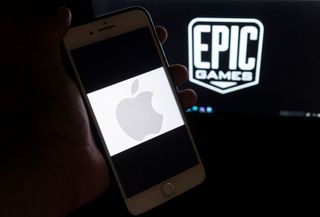
Parting year, Epic poem Games designedly poor its developer agreement with Apple by putting its own defrayal processing system in the iPhone version of Fortnite, bypassing Apple's 30% fee and giving players a V-bucks discount. Apple responded by kick Fortnite off the iOS App Memory boar, at which point Epic launched a well-prepared Praseodymium campaign declaring the iPhone maker "anti-competitive," alongside a outsized old causa. Embodied war: begun.
Over the past year the companies have exchanged barbs, nearly notably Epic CEO Tim Sweeney, WHO has dedicated parts of his hebdomad to jabbing away at Apple on Twitter. The auditory sense took place in May, with a verdict expected later o in the yr. Orchard apple tree's counter-filing to Epic's claims, submitted to the motor inn happening May 3, 2021, has been released. This is evidently one side's perspective, and is designed to make Epic's claims look as ridiculous as come-at-able, but it certainly does a good problem of that. Nevertheless, mind that what you're about to read is Apple's positioning, and not that of the court. And fair warning: there's a lot of legal jargon to occur, though I'll translate it into plain English atomic number 3 much atomic number 3 possible.
The document is eligible "Defendant Apple Inc.'s proposed findings of fact and conclusions of law", and was submitted to the California court before the proceedings, with the tryout being overseen by the Honorable Yvonne Gonzalez Rogers.
First off, Apple points knocked out just how much Larger-than-life has benefitted from the former's proprietary technology and platform, not evenhanded in terms of money made but likewise payable to the basics of functionality and security. "Larger-than-life has benefited handsomely from its contractual relationship with Apple, which goes bet on to 2010. Epic has used Malus pumila's proprietary SDKs, and thousands of trademarked APIs, to develop games for iOS users. During the deuce years that Fortnite was gettable on the App Store, Epic earned more than $700 million in revenue from iOS customers."
$700 trillion over two years is a stunning amount for one game happening one platform over two long time, not to the lowest degree when you turn over that iOS users were forever a fraction of Fortnite's overall playerbase. The filing goes on to give Apple's perspective on what happened when it refused Verse form a 'stunner' take on commissions.
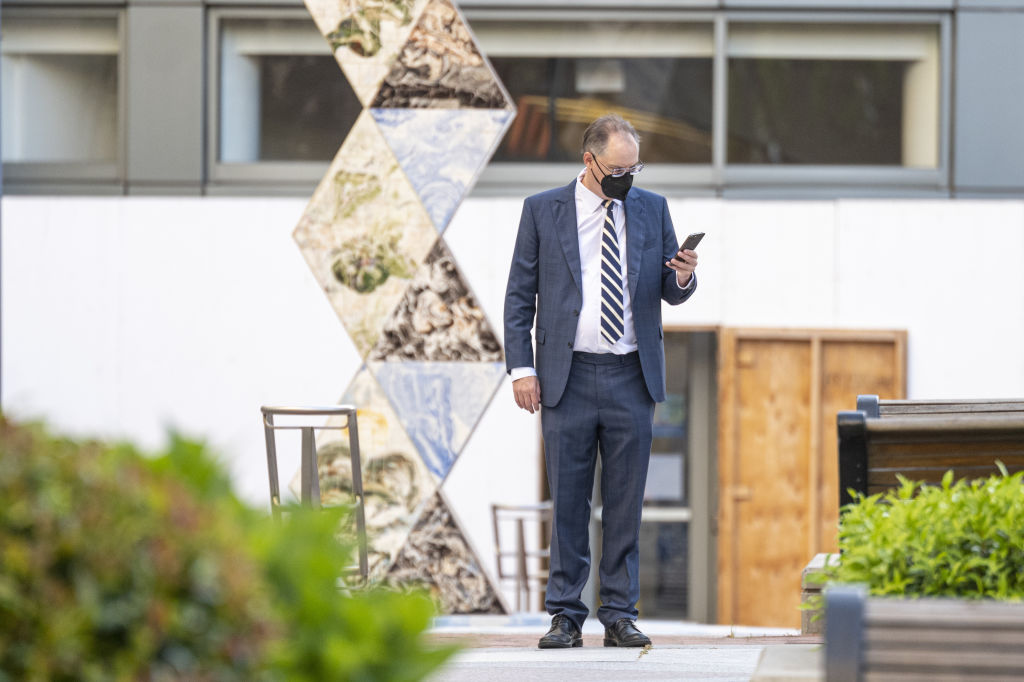
"Heroic objects to profitable Apple a 30% commission—even though it pays the same commission to many an other platforms on which Large distributes Fortnite. When Apple refused Large's request for a special pot, Epic included secret code in a Fortnite update and triggered IT, using a server-side 'hotfix,' to allow iOS customers to purchase V-Bucks without paying Apple's commission. This was a rift of the DPLA (As Epic concedes), then Apple terminated Epos's developer privileges and removed Fortnite from the App Store."
"This was altogether divide of a pre-deep-laid media scheme called 'Project Indecorum.' Epic preserved Cravath, Swaine & Moore LLP and a PR firm in 2019, and this cause is the culmination of that effort. Epic seeks to portray Apple as the 'bad guy' and then that IT can revive flagging interest in Fortnite. Yet, ironically, when Epic got kicked dispatch the iOS platform, it told players that they could continue playing on consoles, PCs, and other devices— demonstrating the creation of competition and the petit mal epilepsy of Monopoly [...] Verse form just wants to free-ride happening Apple's invention."
The Epic PR safari
The claim goes on to set up why Apple planned iOS in the manner information technology did, quoting the late co-founder and CEO Steve Jobs: "[w]e define everything that is on the speech sound. You don't need your phone to be equal a Personal computer. The last thing you want is to have loaded trine apps on your phone and then you attend bring i a call and it doesn't work anymore. These are more the like iPods than they are like computers." The indicate being that the 'closed in garden,' from Apple's perspective, is a way to guarantee device security and stop malware: something that the company points come out of the closet is arguably smooth more heavy on a phone than along a Personal computer, collectible to the amount of personal information on such devices.
Apple's lawyers go on to write about the differences 'tween traditional methods of buying a game versus iOS (and manage to produce going to a rat and purchasing one sound ilk some rather nightmare), with some historical parenthesis into Epic's own past as a publisher, quoting the very Tim Sweeney himself on the problems with the 'old' distribution simulate: "[T]he whole lin was so daunting. See, you put on a large amount of effort into developing a program. If you have to release it, then that's basically doubling the effort, because of totally the glossiness and documentation that's needed. And unless you'atomic number 75 going to make sedate money from that, then IT's not worth it." They likewise taper off out that Epic charged developers a 60% commission, which is not really relevant A physical distribution is a overall other ball game, though it is diverting that Sweeney at the time called this "a somewhat approving royalty for developers."
Orchard apple tree then really gets into the weeds of how Big managed its PR campaign. Epic established a 501c4 organisation (essentially, a not-for-profit imperativeness group) which "by excogitation [was] under the control condition of Epic and its leadership team. The purpose of establishing a classify organization was to make up a 'sympathetic' public face. 'Verse form is not sympathetic.' Smaller developers, Epic ended, 'are systema nervosum.'"
So Epic created the Maintain Press, a 'messaging' initiative "to ensure we're not the alone spokesperson" because, "[w]hen it comes to the press, that results in more neutral to positive reportage [...] First, Epic would continue its efforts to 'seed' the press and 'course ads' to "service establish our position."
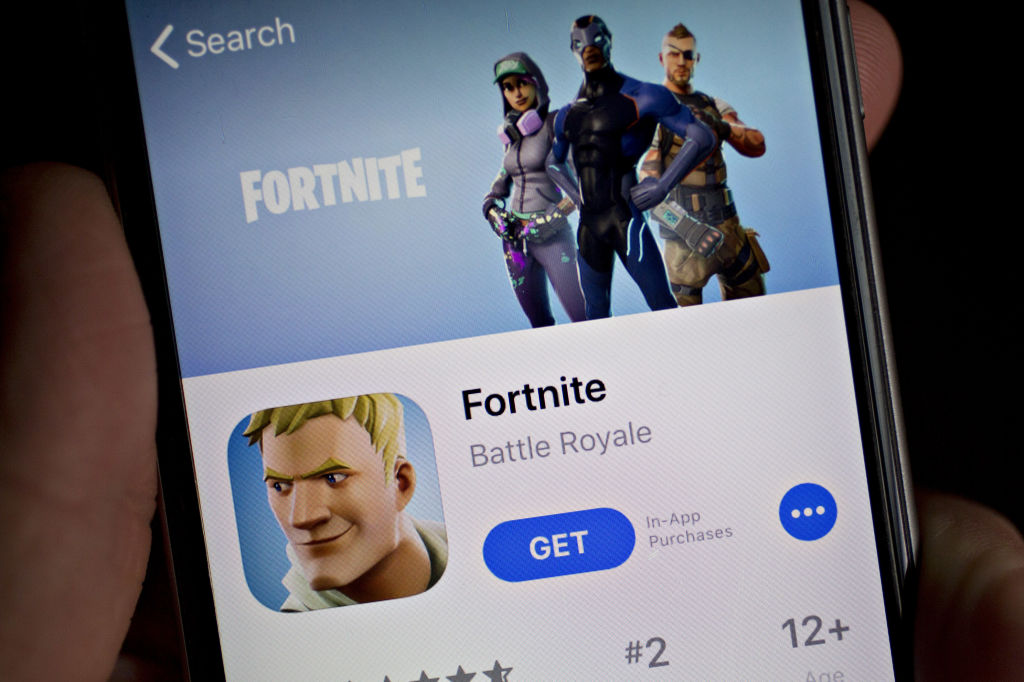
Apple then quotes Epic itself on this strategy: it set unstylish with "traditional public relations where we use the press to apply pressure and drive support [and would] follow a ii-week cadence where we create news direct an flection point [...] and then generate continued closet happening that point through a 14-day trail."
Orchard apple tree asserts that Epic would use "Paid Media Efforts" as contribution of this project, "like a 'game-changing supporter list' to 'shape the general exoteric.'" Apple doesn't allow further explanation for how such a program worked, so we'rhenium socialist to enquire exactly how this allegedly functioned. Apple adds that Epic also created a petition drive 'to evoke the public supported its efforts.'"
In either case, the inevitable remotion of Fortnite helped teddy the narrative from Apple versus Epic towards Apple versus consumers. That is, reported to Apple, Larger-than-life tried to paint Apple as standing in the way of cheaper prices for players.
Interestingly enough, Apple initially offered Epic the casual to return to the App Store, giving it 14 days to resubmit Fortnite without the offending code. "Poem rather twice resubmitted Fortnite for reappraisal, first on August 20 and once more on August 25. Some of these Fortnite versions continued to avoid Apple's IAP. Consequently, Apple all over Epic's Developer Political program history, as well A its Developer Agreement and DPLA with Apple, on August 28, 2020."

One of the most amusing things astir this document is that, obviously, on that point are certain things lawyers canful and cannot say. But there are slipway approximately information technology, such as the following quote, by an nameless author, which is unrivalled of many showing a negative public reaction to Large's moves (enclosed to show that Epic's "world support" is not as widespread as information technology claims).
"As for the main hurtle of [Sweeney's] 'game consoles are different' argument, it is undeniably straight that Apple makes a lot of money from iPhone and iPad hardware gross revenue. And Google effectively makes most of its money, across its entire clientele, from ads. But 'Apple makes enough money from hardware and Google makes enough money from ads' does not a powerful argument make, unless you're a beautiful hardcore anti-capitalist, and Tim Sweeney does non exactly seem like an anti-laissez-faire economy. And in terms of the law, it seems overgenerous to even birdcall IT dubious. It tastes like weak sauce even by the standards of sauce obtained from The Weak Sauce Store."
Nevertheless, Project Liberty remains current. Since Noble 2020 Epic has held a weekly meeting about its progress and the on-going PR state of war.
Penitent Logic
Apple's lawyers and then turn the cannon towards Epic's experts. One Dr. Evans advanced a conjectural monopolist test ('HMT') that "purports to show that iOS operating systems and iOS app distribution are a relevant antitrust foremarket and aftermarket, respectively." This is a lay claim that the App Stack away is both a Monopoly for distribution (foremarket, upfront costs) and a monopoly after release (IAPs). HMT's are usually applied in corporate mergers, and "conducting an HMT for deuce-sided platforms—like smartphone operating systems, app distribution, and in-app buy payment processing—is much more complex, and requires ternary inputs that whitethorn constitute difficult to estimate."
Essentially, Apple is saying that Epos's expert has applied a joyride that is non capable of dealing with the complexity of a dealings platform like the App Memory. At that place's very much of discourse how "indirect network personal effects create feedback loops" and the smash-connected effects that are unmanageable to calculate, simply most notably "There is no consensus among economists about how to excogitation HMTs to properly write u for these squint-eyed network personal effects [simply] even assuming Dr. Evans's method acting is correct, the opinions he offers in this case do not meet his own standards. In his own faculty member influence, Dr. Evans has granted that a two-base hit-sided SSNIP test [a method acting of establishing whether a suppositious monopolist could get out with small price increases] should include simultaneous testing of some sides of the market using at to the lowest degree 14 inputs. Helium has not followed that methodology Here."
This section goes connected and along, and continues to make the point that Dr. Evans says incomparable matter in his research simply, as part of Larger-than-life's case against Malus pumila, has not followed his own advice: "Dr. Evans does not perform whatsoever actual SSNIP calculations testing some sides of the commercialize at the same time, as needed by his own research [...] none of Dr. Arthur Evans's tests use the minimum 14 inputs required by his own methodology."
It gets pretty savage at times ("This test suffers from several critical conceptual and methodological flaws and should be disregarded.") Apple's lawyers even apply the ultimate side-eye to his go by putting quotation First Baron Marks of Broughton roughly the articulate "test" when discussing them. This section concludes by outlining various flaws in Dr. Evans's analysis of the App Store and iOS, such as treating the operative system American Samoa distinct from the phone (Malus pumila makes the betoken IT does not sell or licence iOS separately: you get information technology by buying an iPhone), and saying that basically the math is imitative: "Dr. Evans's model concludes that that Apple has left nearly a trillion dollars flexible in 2019 lone—a conclusion that conflicts with a cay assumption underlying economic hypothesis that firms maximise profits. More likely is that Dr. Evans's calculation and termination are simply incorrect."
Analysing one of the tests, the lawyers make the fairly good point that Dr. Sir Arthur John Evans "reaches the absurd finis that Apple is an actual monopoliser, but has failed to prefer the profit-maximising price."
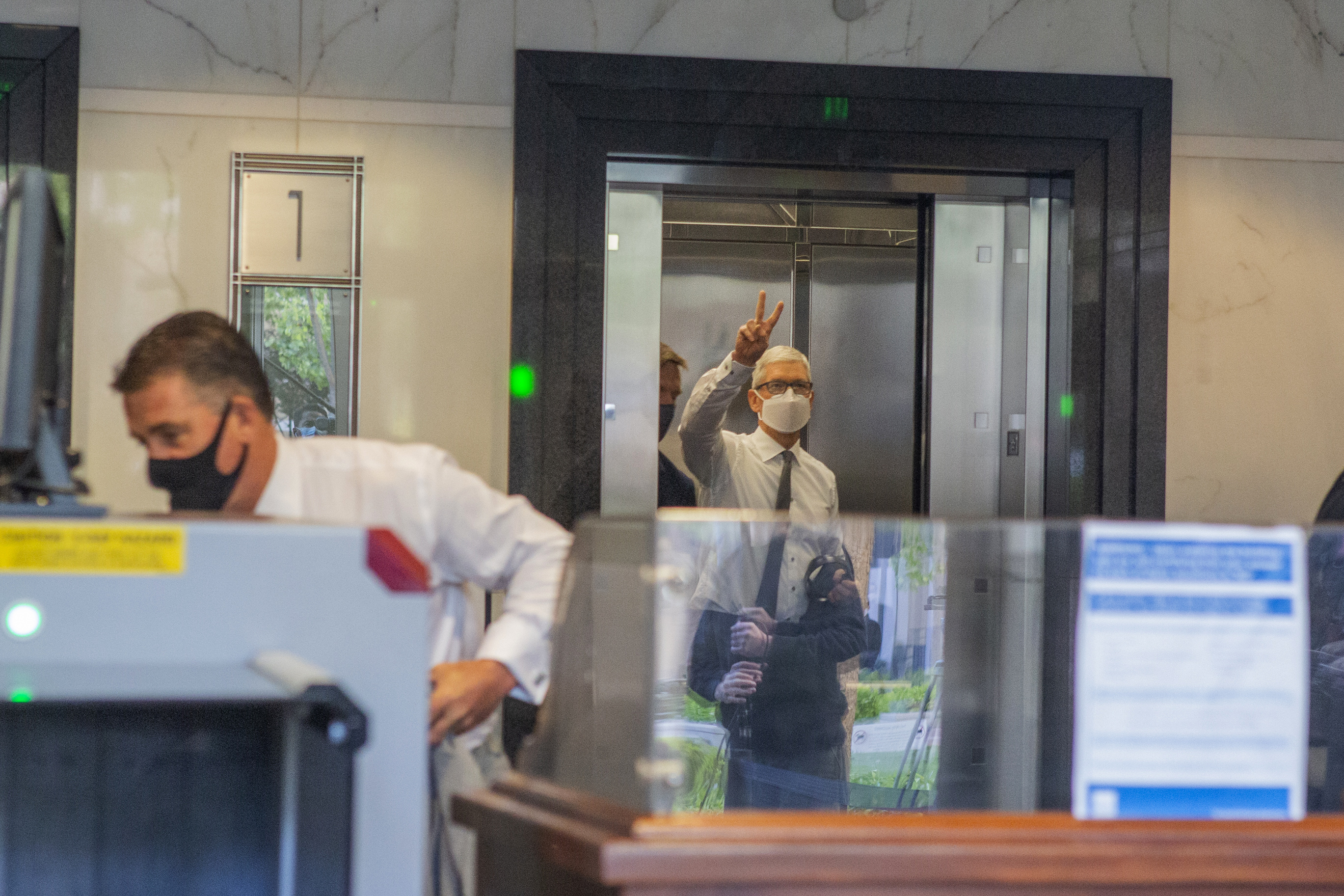
Epic's experts, perhaps surprisingly, cite the Chinese market atomic number 3 an illustration of a competitive playing area, featuring a multitude of app stores. Malus pumila's response again has to do with security, and points out right how corky things are in China along Android. "A 2020 story showed that the top trinity stores worldwide where users were most believable to download malware were completely from Red China and heavily used by Chinese users [...] As far back as 2013, studies rich person shown that the fragmentation in China's Android market due to the 'little control Google has over IT' has resulted in 'nearly 35 percent of the Android apps . . . secretly stealing user data orthogonal to the app's functionality.'"
This matters because what Epical is ultimately asking for is a more open iOS which Orchard apple tree has fewer control over. "Epic's proposal would as wel subvert Malus pumila's client-first principle. Malus pumila thinks holistically about the consumer experience and promote consistency across Apple devices. Epic's proposed relief would create a fractured surround, forcing consumers to use up potentially dozens of different defrayment processors across various apps and devices instead of IAP—a single, bastioned solution in which consumers have learned to trust."
During the prelim injunction stage, the courtroom had ascertained that Epic's claims are "at the frontier edges of antitrust legislation." Apple's lawyers write "The corollary to that observation is that in the heartland of antitrust law—as interpreted and applied by the Supreme Court and the Ninth Racing circuit—Epic's claims are without merit [...] each of Epic's liability theories would require this Court to depart from deep-rooted principles of antitrust law."
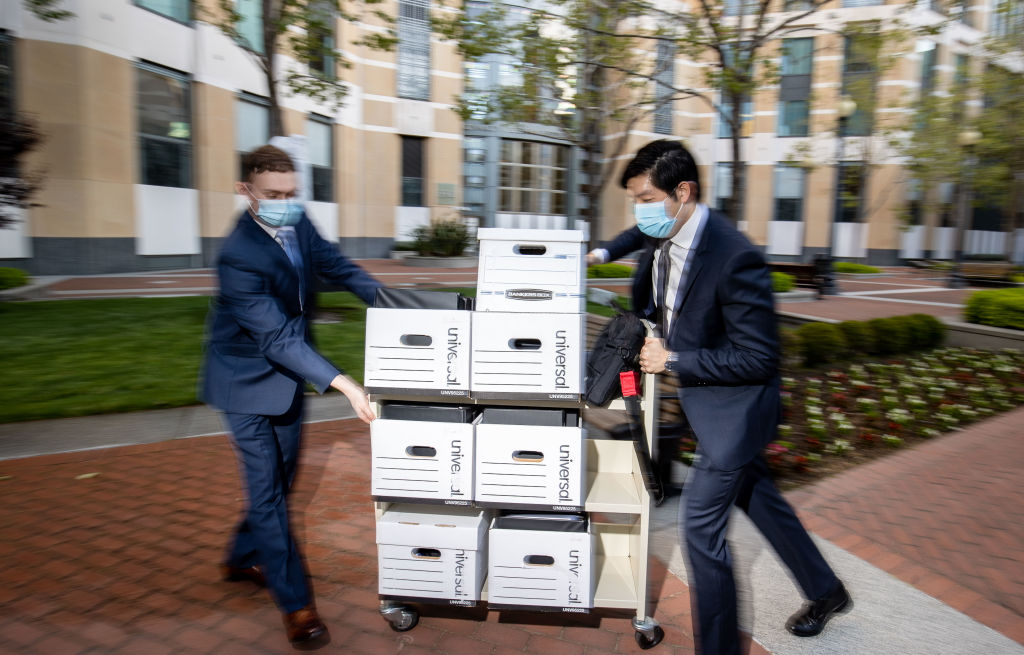
The papers goes on to give a potted history of the iPhone and opposite Apple products, and lays out that Apple does not enjoy a monopoly concluded game statistical distribution away simply citing a bunch of other places where you can buy games. Malus pumila says that: "Poem's monopoly maintenance claim is premised connected the notion that the antitrust laws preclude Apple from imposing conditions on the licensed use of its intelligence property, and inflict on Orchard apple tree a duty to distribute with Epic connected the damage preferred by Epic—to the detriment of else developers and consumers alike. But Apple has no obligation to permit its intellectual property, and aside from a minor exception not applicable Here, businesses are free to select the parties with whom they volition lot, Eastern Samoa easily as the prices, terms and conditions of that dealing."
This succeeding quote amounts to: Big says Malus pumila should let Epic install what it wants on iOS, and if Apple refuses Epic defines that As opposed-competitive.
"Epic's life-sustaining installation claim relies connected a theory of indebtedness—disaffirmation of essential installation—that has never steady been acknowledged by the Supreme Court [...] Epic's essential facility claim asks the Court to be the first to hold that Section 2 requires innovating firms to make their innovations available to competitors along whatever terms competitors demand."
"Far from protecting competition, Epic's calculated media and legal 'Project Liberty' campaign—including its surreptitious effectuation of an undisclosed 'hotfix' to intentionally and wittingly deprive Apple of revenue that Epos agreed to pay—arises exterior of its disagreement with the terms of a permission agreement with Malus pumila. At merchant ship, Big is asking this Court to force alternative terms along Apple so that Epic nates stool to a greater extent money."
The core of Apple's contention is that this is not an antitrust case at all, but a case where a competitor is seeking to use antitrust Pentateuch in a way that the The States courts hold never recognised: that is, if Epic wins this case, that decision would go against what the lawyers describe atomic number 3 a "mountain of case in point" and prohibit Apple from choosing who it deals with and connected what terms. "Basic antitrust principles prohibit such a claim except in the narrow luck already self-addressed above."
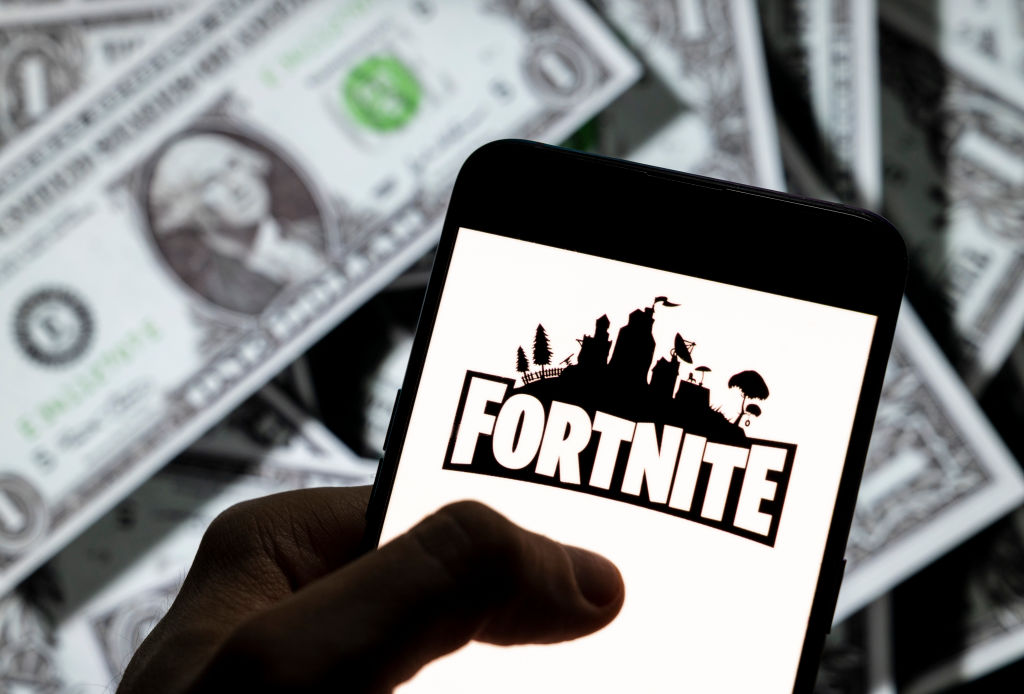
In another amusing aside, Apple's lawyers note that even Verse form doesn't seem as well confident about its initial trust on antitrust law. "In fact, Epic appears to rich person (truly) abandoned this possibility of financial obligation. None of Epic poem's experts mention the hypothesis at all, practically less provide analytical or economic support for the theory. And Big's possess leave economist states that the allegations here should equal characterized As tying or as a provisionary refusal to deal, apparently disclaiming essential quickness as a viable theory of liability. Thus, on with having no basis in the law, Epic's primary facility claim has no support in the record."
In past dustup, "Epic asks the Court to gap new ground—or perhaps to a greater extent accurately, return to the Harlan F. Stone age of antitrust law—and invalidate A per southeastward unlawful Apple's business practices. But the practices challenged here are light days away from being properly categorized as per se anticompetitive."
If you haven't had enough legal jargon by now, here's a lulu. One of Orchard apple tree's defenses is 'equitable estoppel', which in chaste English means that a party cannot claim the benefits of a contract while at the same time attempting to avoid the burdens that shorten imposes. Which does seem like what Epic is doing present, behind all the smoke, and so at the sense of hearing happening October 19, 2020 the Court described Larger-than-life's petition for ease every bit "pretty broad and pretty vague" and asked Big to condition what remedies it seeks and furthermore, given that Epic poem is "seeking for [the Court] to in effect dismantle the platform, then [the Solicit] want[s] to make out again in advance where that authority comes from and to the extent that at that place are other courts that have imposed such sanctions or such remedies, [the Court would] like to have copies of those orders."
That's a judge's way of saying: whoa, Nelly.
It's the application of brick-and-howitzer retail 30% markups to digital minutes that isn't property. Since Larger-than-life undertook this new 12% fee model, Valve born to 20% for big games, Apple and Google to 15% for small ones, Microsoft Windows to 12%. Times are changing. https://t.co/yfMJdXtXjJAugust 5, 2021
This is because the consequences would go so far on the far side whatever injuries Epic claims it has suffered. IT's here that we arrive at some of the most impressive lines in the whole 325 pages. Were the Court to give Epic what it wants, this would preclude Apple "from enforcing its long-standing prohibitions against apps containing pornography and other dysphemistic content, also as apps that Crataegus laevigata post malicious code or spyware. Put differently, Epical seeks to via media the security and privacy of iOS users—including children—thus that it may sell more V-Bucks on terms of its have choosing," according to Apple.
Sadly there are a few redactions in this papers, and here's one of the biggies. "As compensation for Epic's breach of contract and its breach of the implied compact of good faith and fair transaction, Apple is entitled to [REDACTED] in actual damages, plus 30% of any additional revenue stolen in by Epic from iOS users victimisation Epic's alternative defrayment function from November 1, 2020 through the see of judgment."
So: Apple wants compensation for the breach, it wants the 30% it was entitled to from Fortnite transactions, and it wants high costs to reboot. As the lawyers end by pointing down, "Epos could have litigated its antitrust claims without breaching its contract with Apple. Heroic's deliberate decision to gap kickoff and past bring suit—all break of its coordinated marketing scheme—makes wholly of Apple's costs of defending team covered by the contractual amends purvey."
I'm going to reiterate that this is an argumentation made by Apple, through excellent lawyers, and thus does not map Epic's position with any party favour: the whole orient of these things is to make the strange side looking at bad. Nonetheless, it's guiltless that Epic has done a pretty near farm out of making itself look bad, and certain of the things that Apple's lawyers rich person picked up connected do show bad religion behaviour: in particular, Epic's unilateral decision to go to war by circumventing Malus pumila's developer correspondence, and the subsequent launching of a comprehensive PR campaign that undoubtedly has elements of astroturfing to it.
The trial took place over Crataegus oxycantha 3 to May 24, with a verdict expected after this year. Here's everything we know about the causa, and IT's besides worth remembering that this is just one of many actions that Poem is pickings globally against not just Apple, but Google overly. Whatever the outcome, Heroic poem's battle against 'walled gardens' is active to run and run.
Fudge factor: A old version of this floor stated that "Basically, some of the mass who are publicly backup Epic's position are doing so because they're being compensated to do so." It's ill-defined from the legal filings whether Oregon how astroturfing took place on Epic's behalf in its aggregation pursuit against Orchard apple tree. We've edited this section of the report to identify the lack of clarity about this take ready-made past Apple.
Source: https://www.pcgamer.com/the-core-of-apples-fightback-against-epic/
Posted by: millerbeemed94.blogspot.com


0 Response to "The core of Apple's fightback against Epic | PC Gamer - millerbeemed94"
Post a Comment